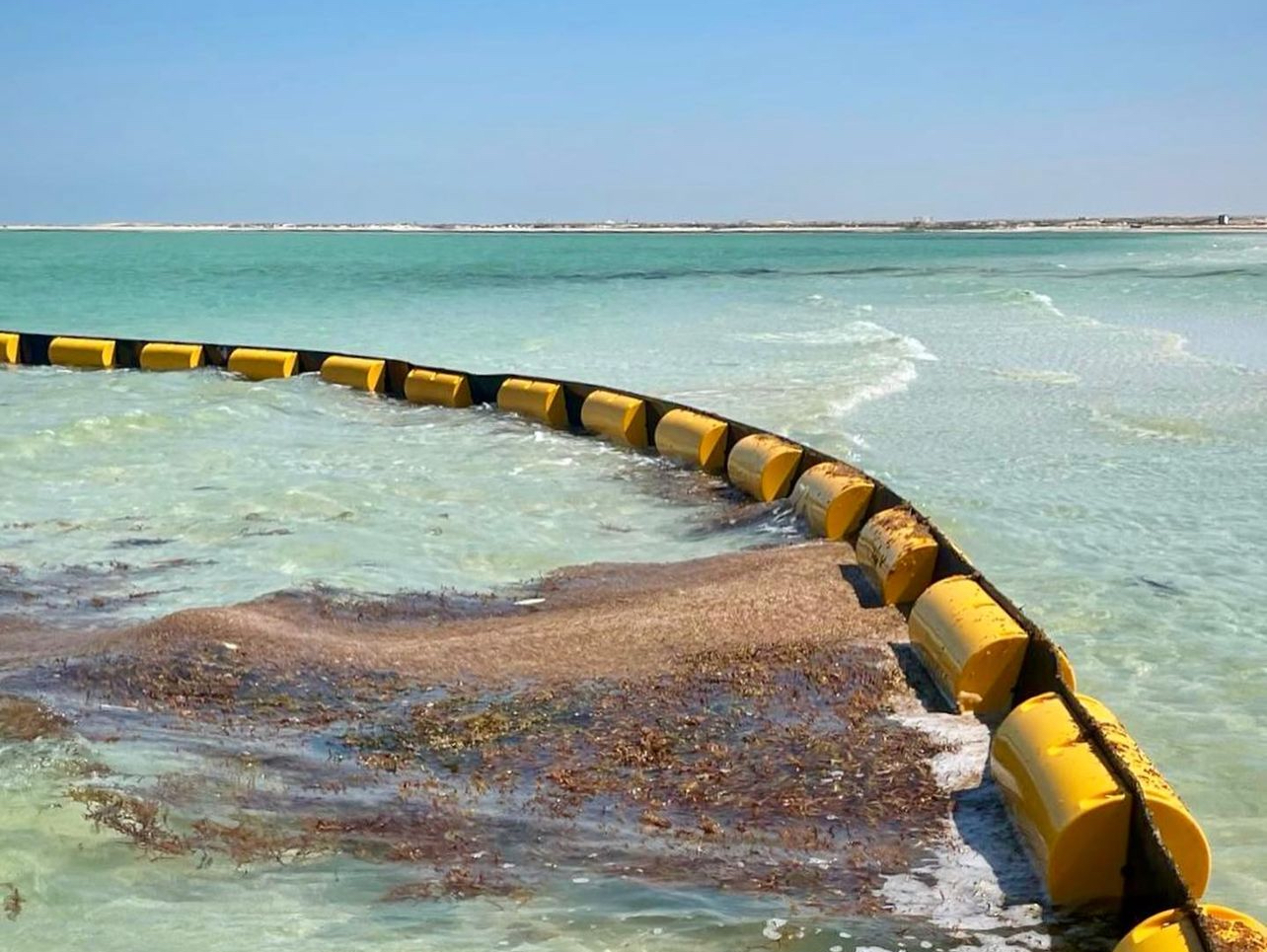Qatar Museums launch the Trashboom project at Al Zubarah Fort to combat marine pollution and preserve the UNESCO heritage site.
Qatar Museums (QM) has announced its latest initiative aimed at tackling marine pollution with the launch of the Trashboom project for Qatar’s large UNESCO heritage site – Al Zubarah Fort.
The project will introduce floating rubbish barriers which will collate plastic waste, litter, debris as well as other pollutants and deflect those materials. This will curb the negative effects of marine pollution at Al Zubarah and lessen the need for beach cleanups.
The barriers are linked together like chains and will be strategically placed along rivers, sea streams, beaches and gulfs with anchors.
Practical solution
In a statement to Qatar News Agency (QNA), Sheikha Al Mayassa bint Hamad Al Thani, the Chairperson of QM, said that “Al Zubarah Trashboom Project exemplifies our commitment to preserving Qatar’s history while embracing innovative solutions for environmental challenges.”
The Qatari royal added: “Through such initiatives, we aim to foster a deeper appreciation for our heritage and a stronger awareness of sustainable practices among the public to ensure that the cultural significance of each site is not only clearly communicated but also accessible, relatable, and enjoyable to visitors, both now and in the future.”
Meanwhile, the Director of Cultural Heritage Protection at QM, Abdullatif Al Jasmi, discussed the necessity of introducing this practical initiative to preserve Qatar’s sole UNESCO World Heritage Site.
“Despite efforts to organise periodic clean-ups, the continuous flow of debris necessitated a sustainable solution, which not only keeps the beach clean but also improves the environment for marine life in the Bay of Al Zubarah.”
He added: “By deploying Trash Booms, we aim to tackle the influx of marine debris in a manner that aligns with our dedication to the long-term sustainability of Qatar’s cultural treasures, and we plan to recycle all the collected waste for other functions that endow the site and benefit marine life.”
A ‘unique’ approach
The project is also backed by the Ras Laffan Industrial City Community Outreach Program (RLIC-COP), which was established in 2010 to mitigate the impact of industrial development.
Sheikha Dana Rashid Al Thani, the head of the RLIC-COP, said the Trashboom initiative is a unique way to tackle marine pollution.
“Al Zubarah offshore trash boom installation project, initiated by Qatar Museums and proudly supported by RLIC-COP, is quite a unique project as it is addressing the plastic marine pollution at one of the most significant archaeological sites in-country recognized by UNESCO,” she said.
Beyond just collecting waste, the Trashboom Project will also repurpose the collected waste material. Further, the anchors to secure the rubbish barriers in place will also act as artificial reefs, providing habitats for marine life and enriching Qatar’s biodiversity, QNA reported.







